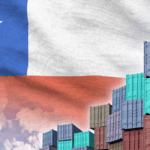Africa and Southeast Asia represent highly attractive emerging markets for Italian businesses. These regions offer numerous opportunities for both export and import, thanks to their economic growth and diversification of productive sectors. Additionally, with infrastructure investments and economic cooperation initiatives with Europe, these markets are becoming increasingly appealing to Italian companies.
What does Italy export to Africa?
Italy has established significant trade relations with several African countries. In 2024, trade between Italy and Africa reached 60 billion euros, with Italian exports amounting to 21 billion euros. Notably, the main exported products include industrial machinery, electrical equipment, chemical products, and vehicles. This demonstrates that these goods meet the infrastructure and industrial development needs of many African countries. Moreover, there is a growing demand for Italian products in the fashion and design furniture sectors, thanks to the reputation of Made in Italy. Morocco, Tunisia, and South Africa are the most promising markets. Let’s take a closer look.
What to export to Morocco?
Morocco is a growing market for Italian exports. The most promising sectors include machinery and equipment for the manufacturing and agricultural industries, chemical products such as fertilizers and textile industry items, as well as processed and high-quality food products. Additionally, Morocco serves as a key logistics platform for exports to Sub-Saharan Africa, making it a strategic partner for Italian businesses.
How does customs work in Morocco?
Furthermore, Morocco has implemented customs procedures to facilitate international trade. Since 2003, the country has pursued a policy of modernization and trade facilitation, introducing measures such as the Automated Customs Networked System, operational since January 2009, which has increased the digitalization rate of customs procedures to over 90%. However, it is essential for Italian companies to be familiar with specific customs regulations and bilateral agreements in place to optimize import-export operations.
What to export to Tunisia?
Similarly, Tunisia offers various opportunities for Italian exports, particularly in machinery and equipment for the textile and agri-food industries, chemical and pharmaceutical products, as well as automotive components, given the growth of the local industry. In fact, the Tunisian government has promoted policies to attract foreign investments, making the country a competitive hub for manufacturing production.
What is required to export to Tunisia?
To export to Tunisia, Italian companies must obtain the necessary authorizations depending on the type of product, understand local regulations, especially those related to quality and safety standards, and prepare the required documentation, including commercial invoices, certificates of origin, and transport documents. Additionally, relying on local consultants can help streamline bureaucratic procedures.
What does Tunisia export?
Tunisia primarily exports textiles and clothing, agricultural products such as olive oil and dates, and electronic components, particularly for the automotive industry. Furthermore, the country’s increasing specialization in the mechanical and aerospace sectors presents new collaboration opportunities for Italian businesses.
What does South Africa import?
Not only North Africa but also South Africa, with its diversified economy, primarily imports machinery and equipment for the mining and manufacturing industries, chemical products including pharmaceuticals, and vehicles with automotive components to support its local industry. Italy also exports luxury goods such as food and wine products and clothing, which are gaining popularity among the growing South African middle class.
What does South Africa export?
South Africa mainly exports minerals and precious metals such as gold, platinum, and diamonds, agricultural products including fruit and wine, and vehicles with automotive components due to a strong domestic industry. Italy also imports timber and chemical products for industrial production.
Now, let’s look at some examples from Southeast Asia: what does Thailand export?
Similarly, Thailand is a major player in international trade, with diversified exports that include electronic products such as integrated circuits and components, automobiles and related parts, agricultural products like rice, sugar, and natural rubber, as well as seafood such as shrimp and canned tuna. Moreover, the country has developed a competitive manufacturing sector that attracts foreign investments.
How much does Thai customs cost?
Customs tariffs in Thailand vary depending on the type of imported goods. Consumer and luxury goods may be subject to high duties, while equipment and machinery for production can benefit from reduced or zero duties, especially if not produced locally. Additionally, with the implementation of the Regional Comprehensive Economic Partnership (RCEP), many tariffs have been gradually eliminated, facilitating trade within the ASEAN region.
What does Vietnam export?
Vietnam has seen significant export growth in recent years. The main exported products include textiles and clothing, footwear, electronic products such as mobile phones and components, as well as agricultural products like coffee, rice, and seafood. This highlights how the country is establishing itself as a production hub for the technology sector, attracting investments from various multinational companies.
In conclusion, Africa and Southeast Asia offer extensive opportunities for Italian companies looking to expand their international presence. Economic diversification, infrastructure investments, and trade liberalization policies are making these markets increasingly accessible. However, understanding local regulations, customs procedures, and market dynamics is crucial to maximizing success in import-export operations. Therefore, investing in a well-structured strategy and building relationships with local partners can make the difference in achieving commercial success in these growing markets.
If you want to seize these opportunities and grow your business internationally, our team of experts is ready to assist you. Contact us today for a personalized consultation and discover how to successfully expand your business in emerging markets!










